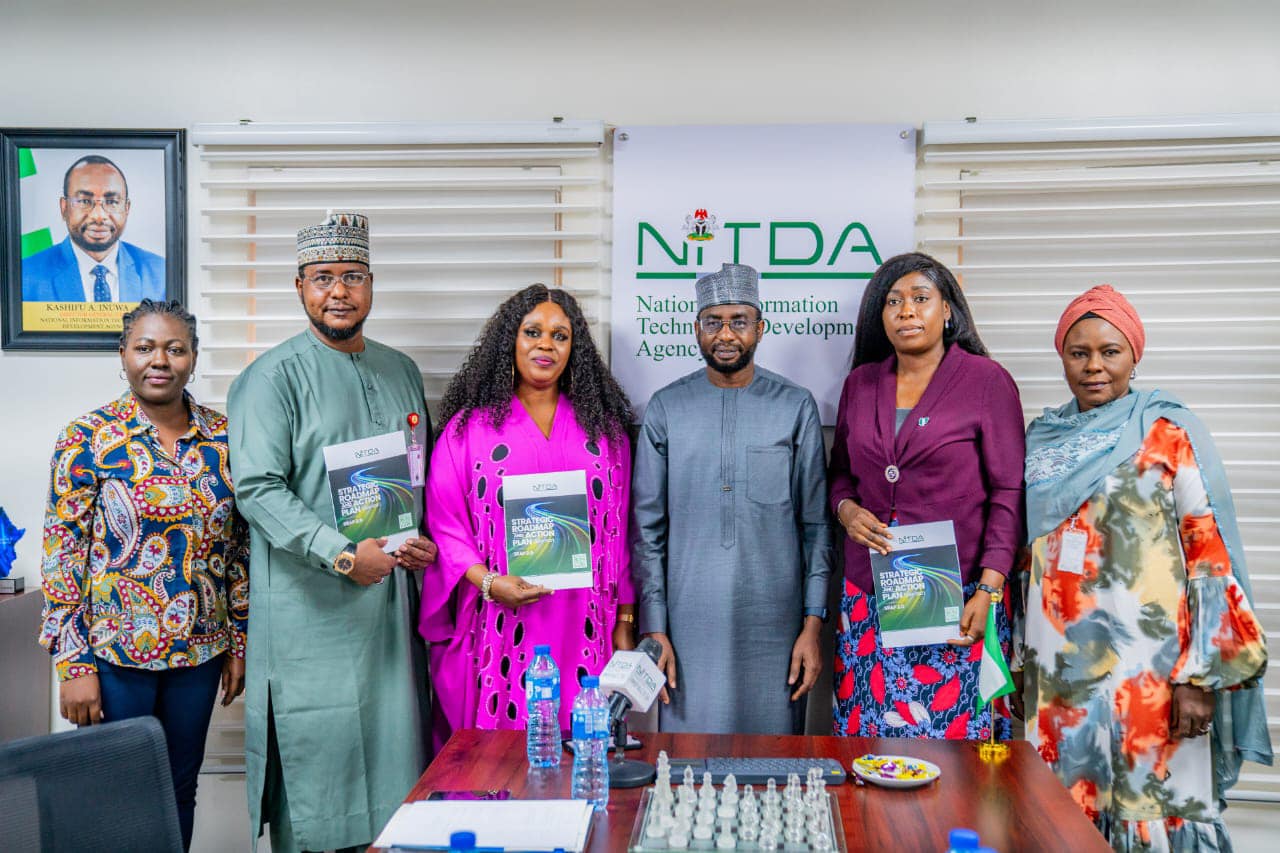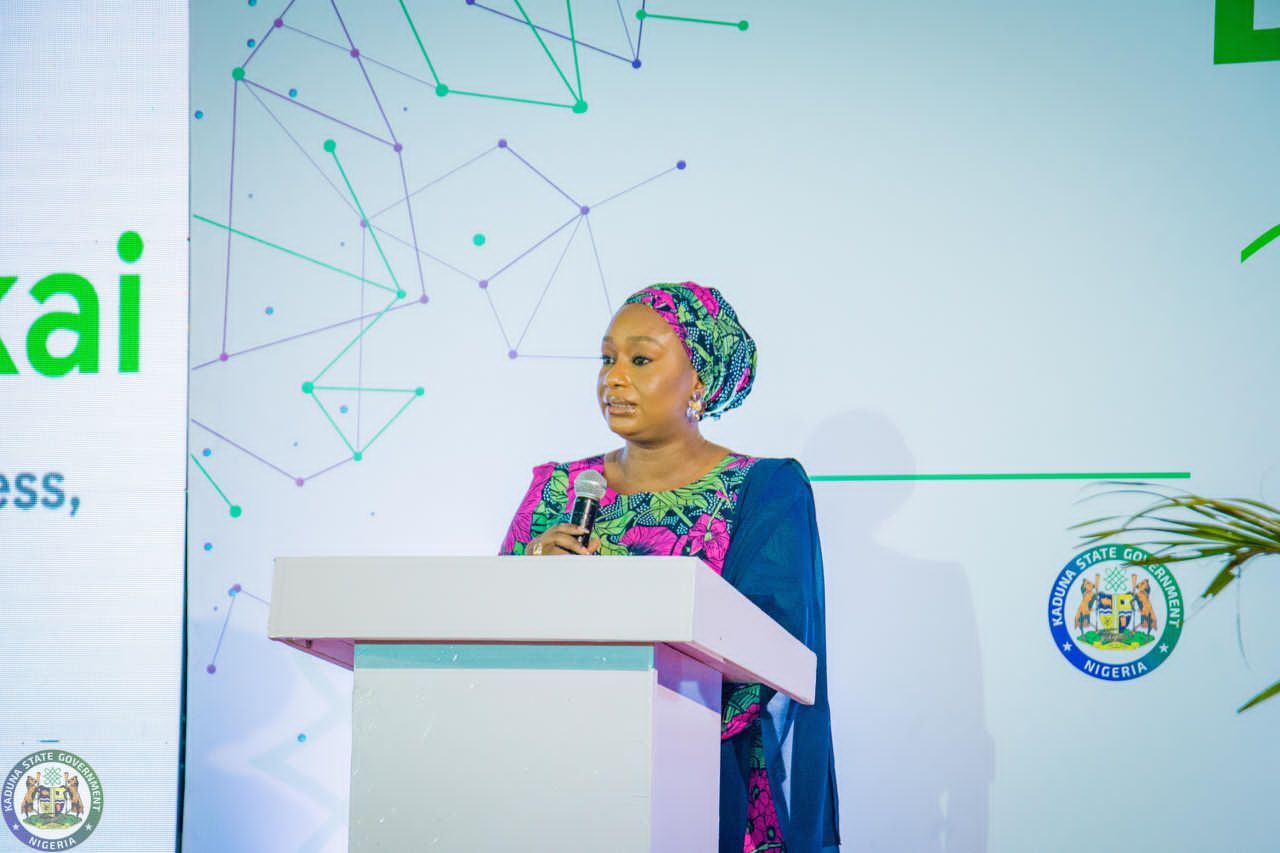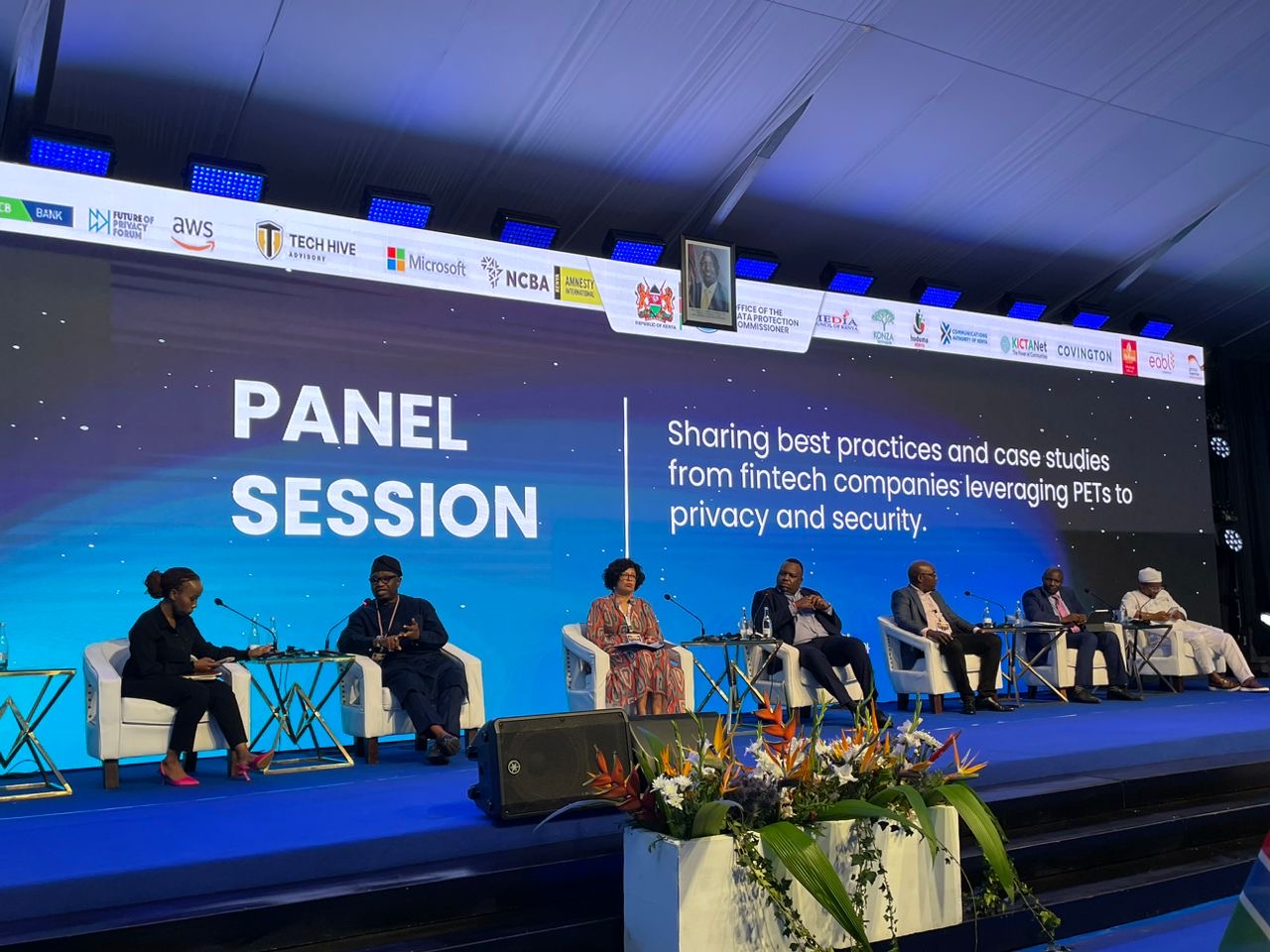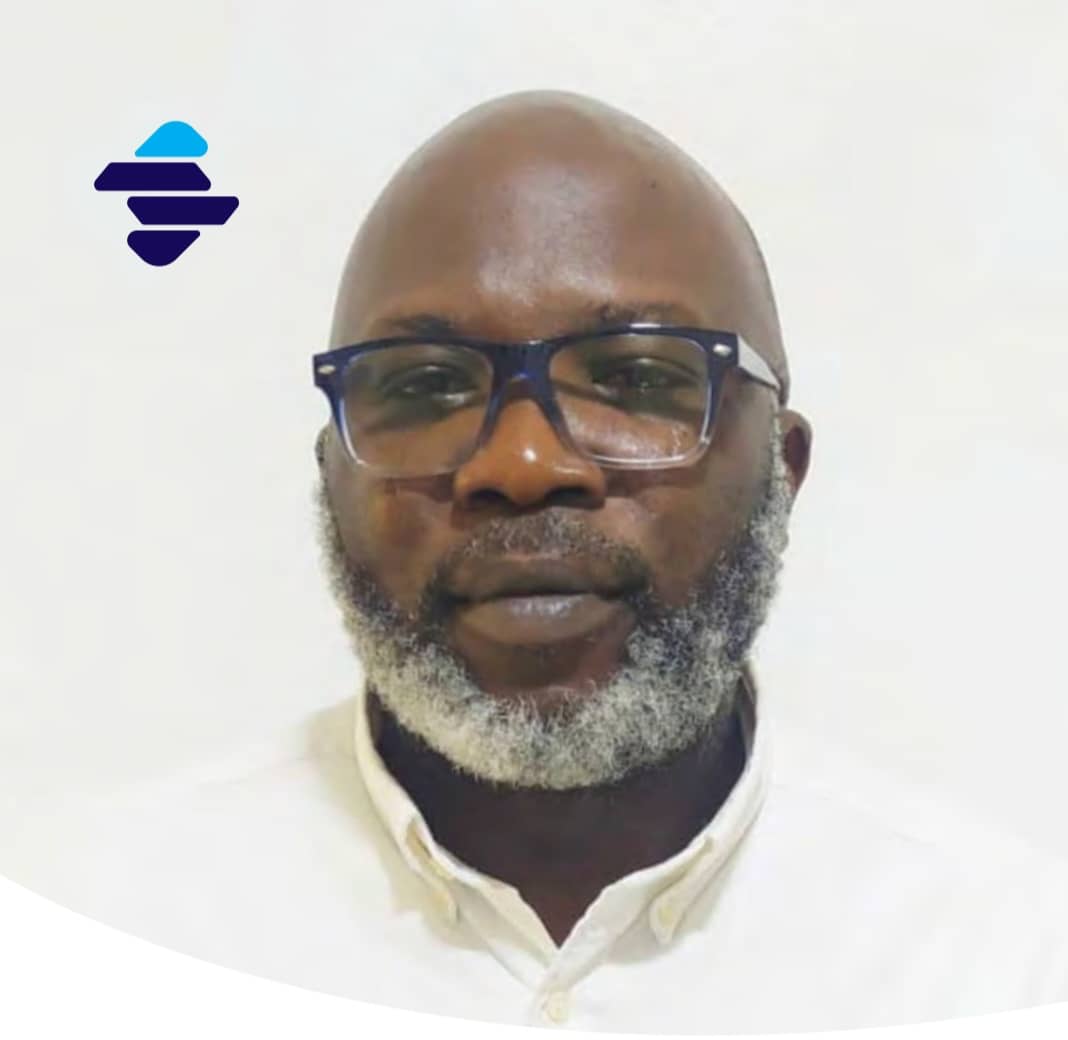In an exclusive interview, we sit down with Johnson Oyeniyi, a prominent figure in the tech industry and CEO of Flexify Solutions. Oyeniyi sheds light on the pivotal role of artificial intelligence (AI) across various sectors of the economy, with a particular focus on education and food security. Oyeniyi elaborates on the ground-breaking AI-powered solution, “CyberAgric,” developed by Flexify Solutions to tackle food security challenges. He provides insights into how Nigerian farmers can harness this innovative technology to enhance agricultural productivity and ensure food sustainability.
Join us as Anthony Nwosu looks into this conversation, capturing the essence of Oyeniyi’s vision and the transformative potential of AI in addressing pressing societal issues.
Flexify Solutions has emerged as a prominent player in the IT sector, particularly in deploying artificial intelligence (AI) solutions in Nigeria. Can you share some insights into the company’s journey so far?
Flexify Solutions’ journey in the information technology (IT) sector has been marked by significant strides, particularly in the realm of artificial intelligence or known as AI and mobile app deployment within Nigeria. Since our inception, we’ve remained dedicated to leveraging and also deploying cutting-edge technologies to address critical challenges and drive innovation in the Nigerian market.
Our journey began with a vision to harness the power of AI and mobile apps to revolutionize various industries such as healthcare, education, agriculture, and beyond. During this period, we also recognized the immense potential of mobile technology in the country as statistics show that in Nigeria, among users aged 16 to 64, more than 90% own a mobile phone, with more than 89.2% owning a smartphone and 14.6% owning a feature phone. Based on these statistics, it informed our decision to focus on delivering our AI solutions primarily through a mobile platform, allowing us to reach a wider audience and maximize impact. As a result, we’ve been able to engage with diverse demographics, empowering them with innovative solutions tailored to their needs. Through relentless innovation, a commitment to excellence, and strategic partnerships, such as our collaboration with Cybermate Technologies, a company I am also a founding member, we’ve steadily positioned ourselves as a prominent player in the Nigerian IT landscape. Our journey is fuelled by a passion for transformative technology and a commitment to driving positive change in communities worldwide.
As our footprint expanded, we expanded our operations globally, becoming registered in the United Kingdom and looking ahead, we’re poised to venture into the American market with cutting-edge AI solutions in 2025.
Your portfolio includes FlexKids, FlexFit360, Healthify, and FlexSuite among others. How have you successfully introduced and established these solutions in the Nigerian market?
Embarking on our mission to introduce innovative solutions to Nigeria posed a challenge, given the competitive market landscape and the diverse needs of consumers and businesses. We began by immersing ourselves in the local culture and conducting extensive research to understand the specific pain points. We noticed that there was a high demand for high-quality educational resources, we collaborated closely with Nigerian educators to develop FlexKids, an app tailored to local standards and learning objectives. The app’s success was swift, earning accolades such as the “Teacher Approved” badge from Google within its first month of launch.
Building on this momentum, we addressed the critical need for health and wellness solutions with FlexFit360 and Healthify. These offerings resonated strongly with health-conscious Nigerians, garnering significant user engagement and trust.Our commitment to meeting the needs of Nigerian businesses led to the creation of FlexSuite, a comprehensive business management platform designed to enhance efficiency and competitiveness. Throughout our journey as a firm, we remained dedicated to user-centric design and forged strategic partnerships with local experts, ensuring our solutions resonated with the unique needs of the Nigerian market. As we continue to expand our presence in Nigeria, we take pride in the positive impact our solutions have had, from empowering education to promoting healthier lifestyles and driving business growth. Flexify Solutions remains committed to delivering innovative technology solutions that truly meet the needs and aspirations of Nigerians.
One of your flagship solutions is the AI-powered agritech solution. In light of Nigeria’s food security challenges, how does this technology contribute to addressing these pressing needs?
We recognize the importance of food security in Nigeria, and our AI-powered aggrotech solution, CyberAgric, is designed, in partnership with Cybermate Technologies, to directly address this pressing challenge. By leveraging mobile technology and artificial intelligence, CyberAgric can enhance food security in several keyways and one of its most innovative features is its ability to detect diseases like Cassava Brown Streak Disease (CBSD) in cassava leaves within the first two weeks of infection. This early detection capability is a game-changer, as it enables farmers to isolate and contain the spread of diseases before they can cause widespread crop failure, ultimately protecting crop yields and food supply.
By utilizing smartphone cameras, farmers can capture images of their crops and receive real-time analysis and recommendations, putting advanced agricultural technology literally at their fingertips.
CyberAgric is designed to be accessible to farmers, even in remote areas with limited internet connectivity as the scanning module is built to function offline, ensuring that no farmer is left behind in accessing this critical technology, the idea is for every farmer to benefit from the power of this AI-driven crop monitoring and disease detection solution.
Also, beyond disease detection, it serves as an educational platform, providing farmers with the latest agricultural best practices, updates, and connections to expert resources. This holistic approach not only identifies problems but also equips farmers with the knowledge and tools to implement sustainable solutions.
What led to the decision to focus on maize and cassava farmers specifically?
Through our strategic partnership with Cybermate Technologies, we have combined our expertise in AI and mobile technology with their deep knowledge of agricultural challenges in Nigeria. This collaboration ensures that CyberAgric is tailored to the specific needs and realities of Nigerian farmers, maximizing its impact on food security.
We started with cassava modules and after wide consultations we decided to add Maize (corn) to it. Firstly, both are staple crops that play a crucial role in Nigeria’s food supply and overall agricultural economy. Maize is a vital source of carbohydrates and protein, while cassava is a primary food crop and an important industrial raw material. By targeting these two crops, our aim is to have a direct and significant impact on securing the nation’s food supply and supporting the livelihoods of a large segment of the farming community.
Secondly, both are particularly susceptible to devastating diseases and these diseases can quickly spread and cause substantial yield losses, posing a severe threat to food security. CyberAgric’s advanced disease detection capabilities, leveraging AI and image recognition, are especially valuable in combating these specific crop diseases, enabling early intervention and containment measures.
Furthermore, maize and cassava are widely cultivated by small-scale farmers across Nigeria, who often lack access to advanced agricultural technologies and resources. By tailoring CyberAgric to these crops, we are empowering these small-scale farmers with a powerful tool that can significantly improve their crop management practices, enhance productivity, and ultimately contribute to their economic well-being and food security.
Considering the internet connectivity challenges and the presence of illiterate farmers, how do you ensure accessibility to your solutions for all stakeholders?
Addressing the challenges of internet connectivity and literacy levels among farmers is a critical consideration to ensure that a solution like CyberAgric is accessible to all stakeholders. As mentioned earlier, CyberAgric is designed to function offline, recognizing the limited internet connectivity in many rural areas. This means farmers can capture images of their crops using the mobile app and receive analysis and recommendations without relying on an internet connection. The AI disease detection model is embedded within the app, ensuring its functionality even in areas with poor or no internet access.
We prioritize a user-friendly interface that is intuitive and easy to navigate, even for farmers with limited technological literacy. The app is designed with clear visuals, simple instructions, and local language support, enabling farmers to understand and utilize its features effectively. We also understand that adopting new technologies can be challenging, especially for farmers who may have low literacy levels or limited exposure to digital tools. To address this, we are deploying a team of field agents and agriculture extension workers who will provide hands-on training and support to farmers in their local communities. These agents will guide farmers through the app’s features, demonstrate its usage, and assist with any queries or difficulties they may encounter.
We are also collaborating with local farmer cooperatives, community organizations, and agricultural extension services to leverage their existing relationships with farmers and their understanding of the local context. These partnerships will facilitate knowledge dissemination, training, and adoption of our solutions, ensuring they reach even the most remote and marginalized farming communities.
“CyberAgric can enhance food security in several keyways and one of its most innovative features is its ability to detect diseases like Cassava Brown Streak Disease (CBSD) in cassava leaves within the first two weeks of infection. This early detection capability is a game-changer, as it enables farmers to isolate and contain the spread of diseases before they can cause widespread crop failure, ultimately protecting crop yields and food supply.”
Are there any collaborations or partnerships with government entities to facilitate the adoption of your solutions and support farmers?
Yes, we recognize the importance of collaborating with government entities to facilitate the widespread adoption of this solution and to provide comprehensive support for farmers across Nigeria. We are actively pursuing strategic partnerships with various government agencies and initiatives, and our aim is to leverage their resources, reach, and influence to accelerate the adoption of CyberAgric and support farmers across Nigeria. We believe that these partnerships will not only facilitate access to our solution but also contribute to policy development, knowledge sharing, and the overall advancement of the Nigerian agricultural sector.
How does Flexify Solutions approach training initiatives for farmers, and what potential impact do you foresee on food security in Nigeria and beyond?
We recognize that effective training is crucial for ensuring the successful adoption of CyberAgric and ultimately contributing to food security in Nigeria and beyond. Our approach to training farmers involves a multi-faceted strategy that addresses various challenges and leverages multiple channels. We are deploying a team of skilled field agents and agricultural extension workers who conduct hands-on training sessions and demonstrations directly in farming communities. These sessions would cover the practical usage of the app, including capturing crop images, understanding the AI-powered disease detection results, and implementing recommended actions. Farmers would have the opportunity to ask questions, practice using the app, and receive personalized guidance from our experts. Also, recognizing the varying literacy levels among farmers, we have developed educational resources in multiple formats, including instructional videos, audio guides, and illustrated manuals in local languages.
Like I said earlier, we are also collaborating with farmer cooperatives, associations, and community organizations that have strong connections with local farming communities so as to leverage their existing relationships and trust to disseminate information about the app.By combining these various strategies, we aim to create a comprehensive and accessible training ecosystem that caters to the diverse needs of Nigerian farmers. Our ultimate goal is to empower them with the knowledge and skills necessary to fully utilize the potential of the solution.
We foresee a significant impact on food security in Nigeria in particular and Africa in general. As more farmers adopt CyberAgric and implement its recommendations for early disease detection and preventive measures, crop yields are expected to improve substantially. This increased productivity will contribute to a more reliable and abundant food supply, addressing the pressing challenges of food insecurity in the country and potentially inspiring similar initiatives across the region.
Moreover, by equipping farmers with the latest technological tools and knowledge, we are fostering a more resilient and sustainable agricultural sector, capable of withstanding the challenges posed by climate change, pests, and diseases. This, in turn, will help ensure long-term food security and support the livelihoods of farming communities across Nigeria and beyond.
For illiterate farmers, is there provision for language diversity in accessing and utilizing your solutions?
Yes, addressing language diversity and catering to illiterate farmers is a crucial aspect of our approach. We understand that language barriers and literacy levels can be significant obstacles in the adoption and effective utilization of this app. To ensure accessibility for all farmers, we have implemented a multi-language support, offering interfaces and voice prompts in various local languages commonly spoken in Nigerian farming communities, such as Hausa, Igbo, and Yoruba.
This feature allows farmers to navigate the app, receive instructions, and interpret results in their native tongues, removing language barriers and promoting better understanding.
“We prioritize a user-friendly interface that is intuitive and easy to navigate, even for farmers with limited technological literacy. The app is designed with clear visuals, simple instructions, and local language support, enabling farmers to understand and utilize its features effectively. We also understand that adopting new technologies can be challenging, especially for farmers who may have low literacy levels or limited exposure to digital tools.”

















